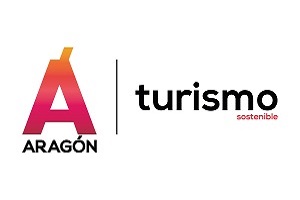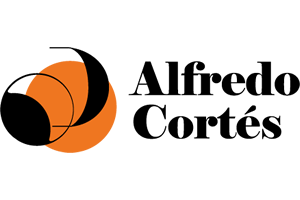The company has recently assigned four patents on its slurry technologies to the regional government with a potential social and environmental benefit of one billion euros. Its R&D work is attracting the interest of institutions such as Harvard and it is present in almost 50 countries.
That an institution of the prestige of Harvard University contacts a company from Teruel to learn how the research and development model of the province has emerged is something that, although it may be anecdotal, puts on the track of the work done from Térvalis. This business group, born in 1986, is clearly committed to R&D and, in fact, a few days ago it materialized the transfer of four of its patents in biofertilizer technologies to the Government of Aragon, a knowledge now in the hands of the regional government that has a potential social and environmental benefit of 1,000 million euros, according to estimates by the University of Zaragoza. These patents also address the issue of slurry, one of the most important issues for the Aragonese environment due to the impact of the increasingly powerful pig industry.
“What we have tried to do is to put in the hands of the Government of Aragon some technologies that, in addition to having an economic benefit for the sector, by their very nature have a social benefit, in terms of the environment and structuring, which the company as such does not have the capacity to put in value,” says the group’s executive director, Sergio Atarés.
These technologies address the replacement of mineral fertilizers with organic fertilizers thanks to technologies that make the latter a powerful alternative and, at the same time, reduce the environmental impact they cause. In other words, they achieve a double effect; on the one hand, they mitigate “the pollution associated with nitrogen that evolves from slurry in the form of ammonia to the atmosphere or in the form of nitrates to aquifers”, explains Atarés.
Greater benefits for farmers and livestock farmers
And, on the other hand, “a greater economic benefit for farmers and ranchers”, since the former obtain greater animal welfare, while the latter “will have a much greater fertilization power at a lower price”.
The economic forecasts of these technologies were already advanced at the signing of the patent transfer agreement, as concluded in a study carried out by the Economics Department of the University of Saragossa. This work estimates the potential benefit for the sector at between 90 and 100 million euros per year, so that each farm could obtain a net result of more than 20,000 euros, and a social and environmental benefit of 1,000 million euros.

A change from mineral fertilizer to organic fertilizer, which, in addition to allowing the use of nitrogen from slurry that pollutes soil and air, also avoids the use of, above all, natural gas to produce the former. “It will mean a net increase in the sustainability of the agri-food sector,” says Atarés.
This project is being developed in an area such as Aragon, which, thanks to its geographical and economic characteristics, can become a leader in this regard. The pig sector is very important,” says the head of Térvalis, “so we have that material, which is slurry, and we have enough land, soil, and we have added value from agriculture”.
These effects, in addition to their direct impact on the environment, could also translate into incentives for the end user: “If we manage to cement this sustainability from the base, which is fertilization and soils, we will be able to provide greater added value to our products and better informed consumers will prefer more sustainable products”, he explains.
Experience in Cinco Villas
For the time being, the project with these patents has gone from the Térvalis facilities in Teruel to a pilot experience in Cinco Villas. This test will start within two months and will run for two years. With this leap to the region of Zaragoza, the project gains scale, since “there is more slurry to work with”, he explains.
“But this leap in scale is just the beginning; we are already studying other regions that have shown interest in becoming capillaries. We are starting with Cinco Villas, but later we will move on to other regions,” he says.

In addition to focusing on organic fertilizers, Térvalis also sets its sights on the energy issue. With the IAM Caecius project, selected as an Important Projects of Common European Interest (IPCEI), it is investigating innovative uses of green hydrogen.
“One thing is to demineralize the agri-food sector and another thing is to decarbonize it, that is, how are we going to obtain new fertilizers from renewable sources,” explains Atarés. Specifically, with the plant that has been developed in Teruel for this project, the aim is to obtain some 15,000 tons of ammonia, a fertilizer precursor, from renewable energies and water. “It is the first plant planned on this scale in Europe”, emphasizes the head of Térvalis.
Regarding this project, worth some 160 million euros, he explains that pre-feasibility studies have already begun and six European regions will act as supervisors, with the intention of using these technologies in the future. He estimates that the plant could be operating at full capacity by 2028.
The future and the circular economy
All these projects are circumscribed or are related to the concept of circular economy, an issue that the regional government is working to promote with the Aragón Circular strategy.
The group from Teruel is part of this strategy on an issue that Atarés considers “essential”. “Without a clear impulse from the administrations, Aragon could possibly be left behind in this new transformation of the socioeconomic sectors”, he points out. In this way, the company’s CEO encourages to continue on this path, which also allows Aragon to be “at the forefront”.
Although the internationalization of the group is clear and they already have expansion plans in different countries, the Térvalis group has always been closely linked to its place of origin, Teruel. A territory about which Atarés is “very optimistic”. “It is a very dynamic province, where, although there is a small population, there is a lot of entrepreneurship,” he stresses.
In addition, and given the current needs, he notes that it is a place “with a lot of land per inhabitant”, something that the new economy of renewable resources demands. “We need many square meters for energy, many square meters for crops, many square meters for biomaterials, and in that better, than Teruel, nothing,” he adds.
About the province, he recalls how a few months ago they contacted him from Harvard University “to explain how Teruel’s R&D model has been able to emerge.” “We have 150 patents in 20 countries and that, per capita, weighs a lot”, he reflects on a territory on which he concludes: “We are not victims, we are protagonists of this great transformation”.














